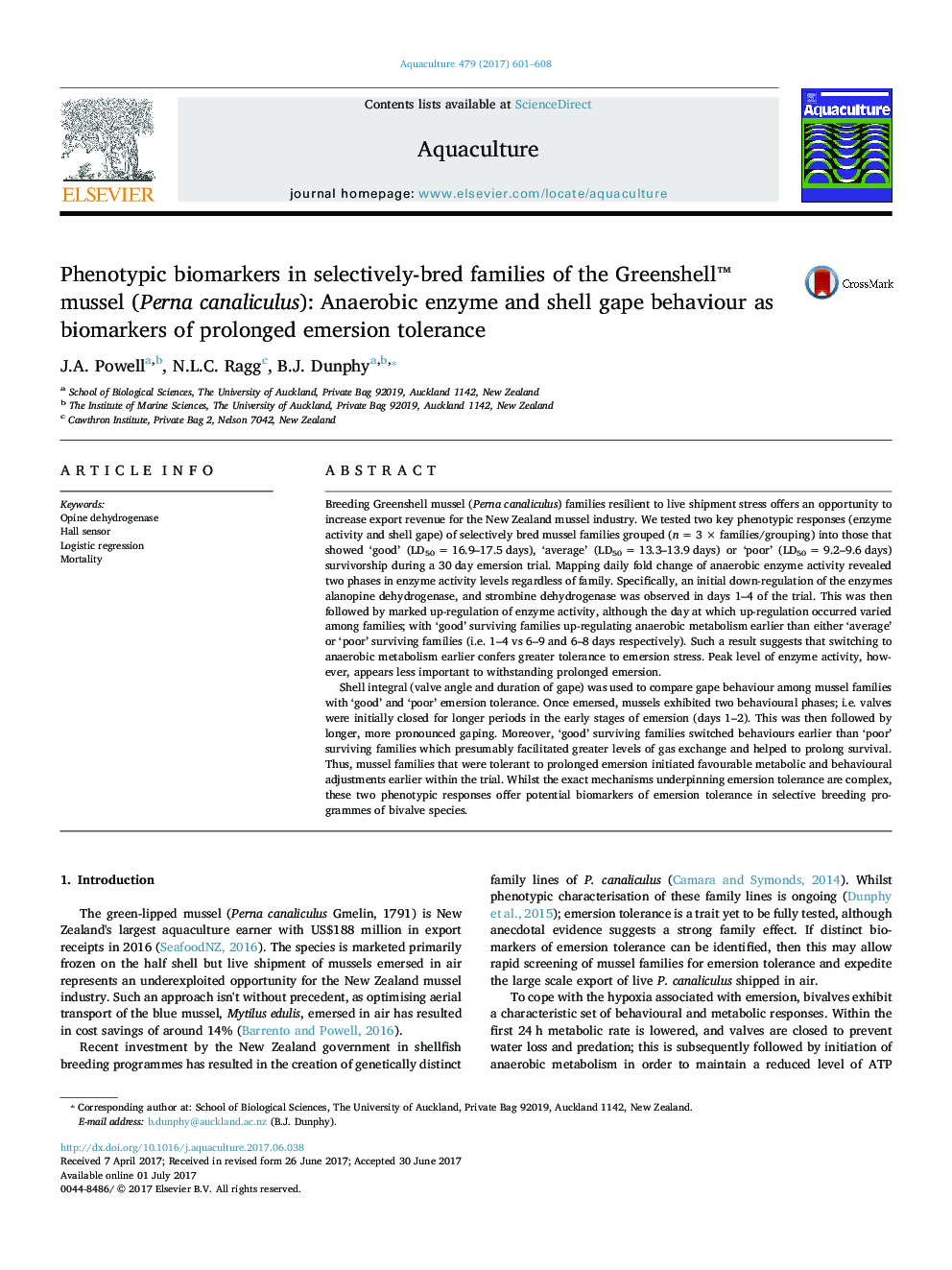| Article ID | Journal | Published Year | Pages | File Type |
|---|---|---|---|---|
| 5539277 | Aquaculture | 2017 | 8 Pages |
Abstract
Shell integral (valve angle and duration of gape) was used to compare gape behaviour among mussel families with 'good' and 'poor' emersion tolerance. Once emersed, mussels exhibited two behavioural phases; i.e. valves were initially closed for longer periods in the early stages of emersion (days 1-2). This was then followed by longer, more pronounced gaping. Moreover, 'good' surviving families switched behaviours earlier than 'poor' surviving families which presumably facilitated greater levels of gas exchange and helped to prolong survival. Thus, mussel families that were tolerant to prolonged emersion initiated favourable metabolic and behavioural adjustments earlier within the trial. Whilst the exact mechanisms underpinning emersion tolerance are complex, these two phenotypic responses offer potential biomarkers of emersion tolerance in selective breeding programmes of bivalve species.
Related Topics
Life Sciences
Agricultural and Biological Sciences
Aquatic Science
Authors
J.A. Powell, N.L.C. Ragg, B.J. Dunphy,
